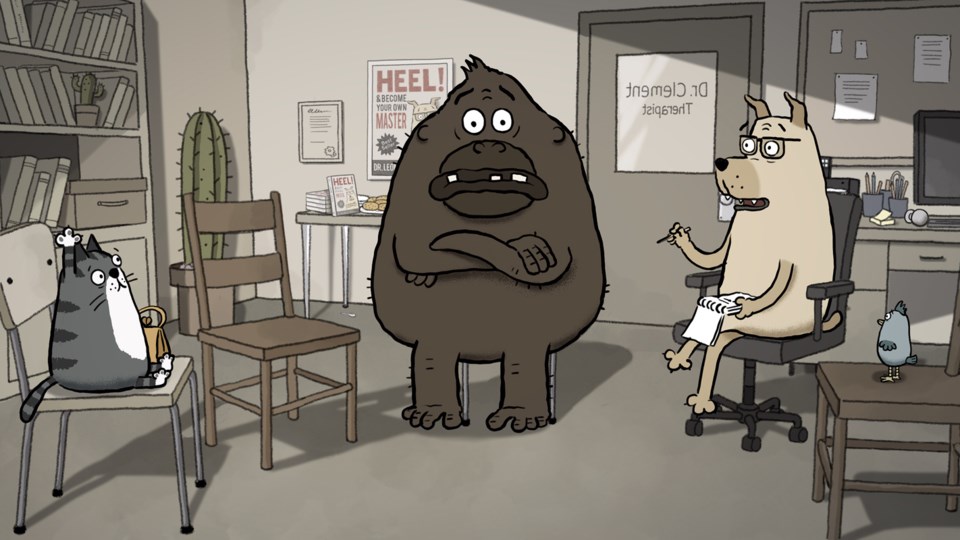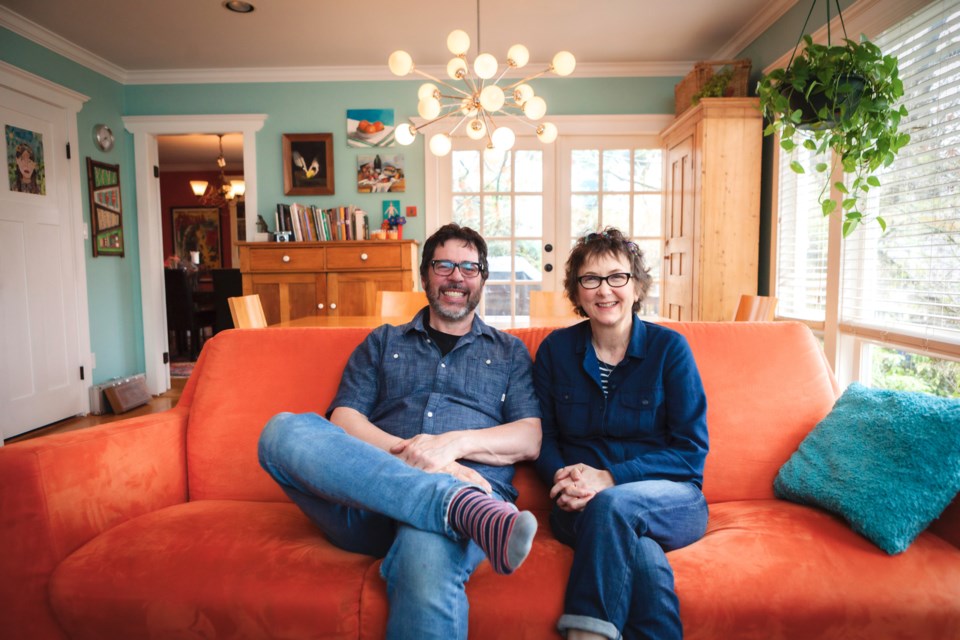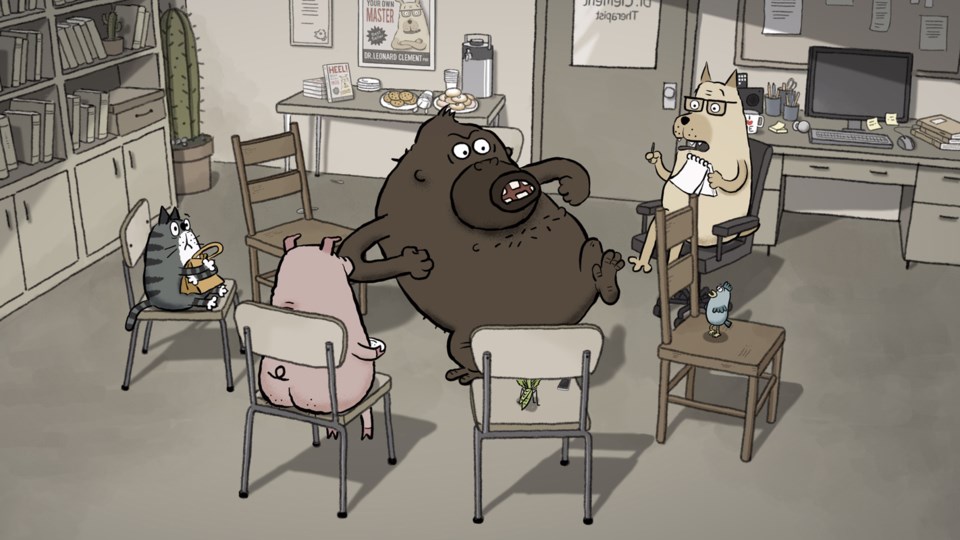Alison Snowden is a filmmaker, an animator and an Academy Award winner.
And, at certain points in her life, she’s also been tremendously shy.
That’s how Snowden ended up in a confidence building class 20 years ago, intent on digging down to the root cause of her chronic shyness.
What she found there was creative fodder.
“There was an exercise where you had to look in a mirror and say to yourself that you love yourself – ‘I love you’ – and that was so hard,” recalls Snowden, seated beside her husband and collaborator David Fine in their home in Kitsilano. “I could see everyone grimacing.”
Two decades on, Snowden’s experiences in that class inform Animal Behaviour. Written, directed, and animated by Snowden and Fine, the short film won the Grand Prix at Rio de Janeiro’s Anima Mundi (positioning it as an Oscar contender) and will screen next month at the venerable Toronto International Film Festival.
In Animal Behaviour, five animals — a leech, a pig, a praying mantis, a cat, and a bird — meet to discuss their assorted inner angst in a group therapy session led by a canine psychotherapist (voiced by Vancouver actor and improviser Ryan Beil). Their session is interrupted by the arrival of an ape with anger management issues who can’t quite grasp the point of therapy. View the trailer here.

The film begs a couple of questions, according to Fine. “Should people change their behavioral qualities that come naturally to them to fit in better, or should other people accept them for who they are? And is therapy helpful, or is it just navel-gazing?”
This isn’t the first time that Fine and Snowden have mined their lives for animation inspiration. In 1993, they won the Academy Award for Best Animated Short Film for Bob’s Birthday; in it, a man named Bob struggles with the arrival of middle age as his wife Margaret plans a surprise birthday party. The short was inspired by the couple’s experiences turning 30 and served as the pilot for the British-Canadian adult animated series Bob and Margaret.
Fine and Snowden met in a London film school in 1980. They were each there to study live action filmmaking but they gravitated towards the animation department, where students such as Nick Park (who would go on to create Wallace and Gromit) and Mark Baker (who co-created Peppa Pig) honed their skills.
It was Fine the Torontonian who introduced Snowden the Brit to the animated works of the National Film Board of Canada: films such as Special Delivery, Why Me? and The Big Snit that demonstrated that “you can make an independent short story in any style you want and it doesn’t have to be that classic Disney animation,” she recalls. “That’s when I developed an interest in animation.”
In their final months of university, Snowden and Fine collaborated on Second Class Mail, an animated short film about an inflatable mate that earned them their first Academy Award nomination (which leads to Snowden’s advice to emerging filmmakers: “Make a short film that’s very short to show your sensibilities and your style.”)
Together, they’ve told both adult and kid-oriented animated stories in short and serialized form: in the aforementioned Bob and Margaret; in Shaun the Sheep (which they helped develop); in George and Rosemary (an award-winning NFB short about a senior in love with the woman next door; they earned an Oscar nom for that, too); and as writers on the juggernaut British preschool TV series Peppa Pig.
Speaking of Peppa Pig, their now-20-year-old daughter, Lily Snowden-Fine, was the original voice of the titular piglet.

Since settling in Vancouver in 2004, Snowden and Fine have held tight to their independence while collaborating with homegrown studios and networks.
“There are a lot of really good studios in Vancouver doing very impressive work, and a lot of production here, which is a great environment to be in, and at the same time, there’s a long history of indie work,” says Fine.
“The unfortunate thing is that the city is so hard to live in. The industry attracts young people, but then young people go, ‘It’s too expensive to live here.’”
The housing crisis is a heavy topic. So is mental illness. Snowden hopes that Animal Behaviour — which was produced by the NFB, and will screen locally at the Spark Animation Fest in October — will inspire discussions around mental illness and therapy. She imagines it being screened on the first day of psychology classes as a kind of lighthearted intro to the weighty topic.
“I’ve always thought they should do more psychology in schools,” says Snowden. “There’s so much depression. Kids have issues. Why do you have to wait until you’re in your 30s to go and sort out these emotions? Wouldn’t it be better if we made an effort earlier to understand why we do the things we do?”


